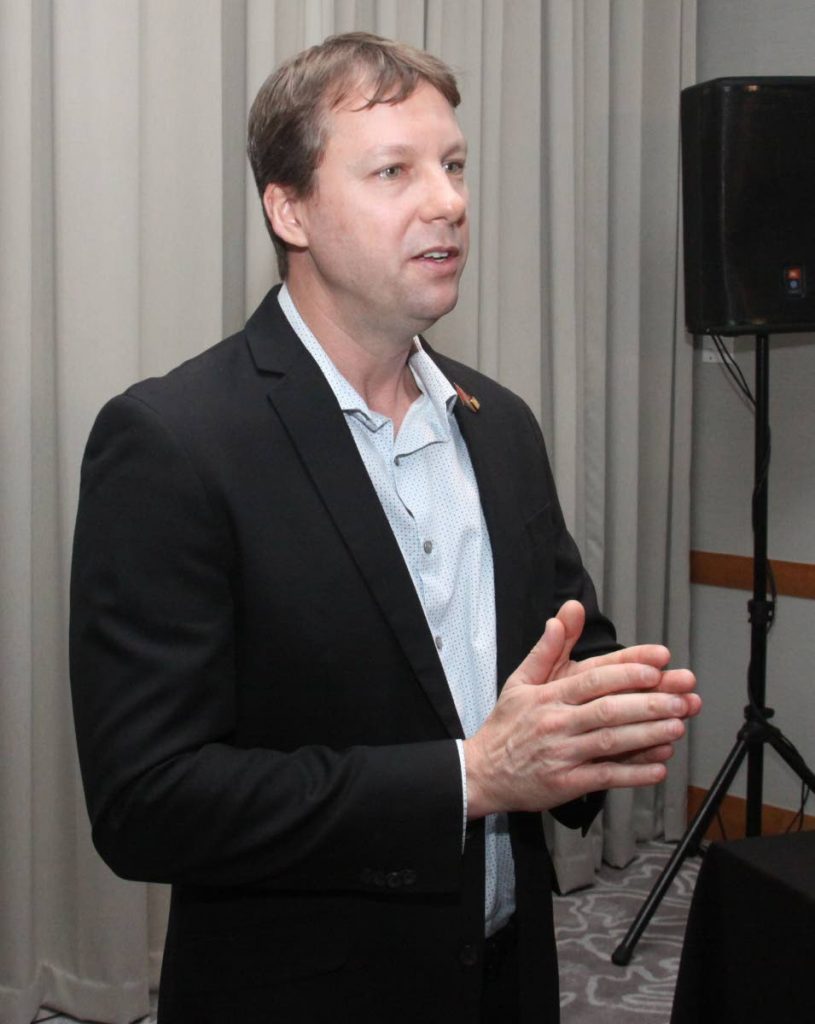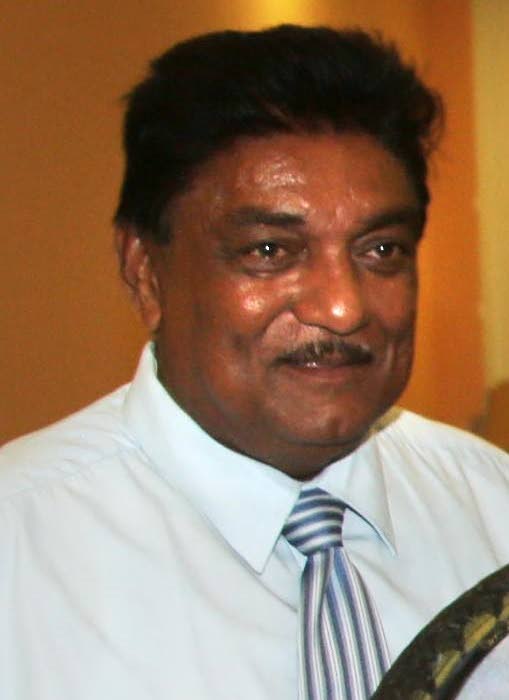Biz Day chambers' expectations of Mid-Year Review

Timely disbursement of VAT refunds, re-introducing an export allowance, measures to tackle crime and reviving the Economic Development Advisory Board are on the mid-year review wish lists of the TT Manufacturers' Association (TTMA) and the Couva/Pt Lisas Chamber of Commerce (CPLCC).
Business Day spoke with TTMA president Christopher Alcazar and CPLCC president Ramchand Rajbal Maraj prior to today's budget review in Parliament.
The TTMA has long called for improved processing/payment times, so it comes as no surprise that "resolving the vexing VAT refund problem" topped Alcazar's list.
"(We have) continuously signalled to the authorities that this matter is causing significant problems for our membership, especially the SME (small and medium enterprise) sector. Presently there are many members who are experiencing cash flow challenges and this can be directly linked to VAT return challenges."
Alcazar reminded that the TTMA has proposed long-term solutions to Government, such as net off and the removal of VAT on imported raw materials.
"We are hopeful that apart from releases to ease the VAT situation, our solutions... would be looked at and discussed in the mid-year review."
Axe property tax on plants
The TTMA would also like to the review to include its recommendation that plant and machinery used in non-energy manufacturing be exempt from property tax, whenever the new system comes into effect.
"As presently presented to the wider community, we are advised that property tax would be issued on plant and machinery. We firmly believe this formula is a backward step, considering that as a nation we are trying to encourage persons to produce more, expand operations and so export and employ more.
"Implementation of property tax on plant and machinery would only serve as a dis-incentive. We recognise the Government's strategy was to ensure that multinationals in the oil and gas sector were the prime target of this move. So we have also recommended – to allow for this strategy to still materialise – to exclude non-energy manufacturing from this framework, as is the case of the agriculture sector and as is allowed in the provisions of the act. The (finance) minister has that jurisdiction and power to do so."
Alcazar also argued against the "retrograde implementation" of property tax. He said this would be a backward step especially to households who can’t afford such at this time, especially those on fixed incomes.
However last week, Imbert said, concerns about the property tax being retroactive for two years are unfounded. The property tax waiver lapsed at the end of 2015, making the tax applicable in 2016. In a statement, Imbert said, “What the Government is proposing in the bill before the Parliament is the extension of the waiver of the collection of property tax beyond December 31, 2015, as is the current law.”
Imbert noted that not only is the bill still before the Senate, the committee stage has not yet taken place and is scheduled for tomorrow.
He also said Government had not yet circulated its proposed list of amendments for the Senate's consideration as his ministry was still reviewing the contributions made by all senators in order to finalise the list of amendments.
Third and final on the TTMA's list is a framework for the re-introduction of an export allowance.
"(We) would like to see the framework for the incremental export incentive presented in the review, with an immediate implementation time frame. This is another measure that the association has been agitating for introduction since last year and it was one of our budget recommendations."
Alcazar said having a framework would go a long way, acting as an impetus for export-led growth. He told Business Day the TTMA has presented a framework to Government, one which "does not disadvantage any party."
Fix forex
The CPLCC has a different priority list – address ongoing foreign exchange (forex) shortages, crime, Economic Advisory Board (EADB), the Tripartite Committee as well as banks' service charges and lending rates.
On May 4, Imbert launched the Export Import Bank's (Eximbank) Forex Facility, which gives local manufacturers and exporters access to US$100 million.
At least 30 per cent of a business’ production must be for export, with established manufacturers having to agree to repatriate a "suitable amount of their forex earnings" to qualify. Imbert also said "start-ups or fledgling manufacturers with a lower level of export production but with a feasible export plan will also be considered favourably."

Without making reference to the Eximbank becoming a licensed dealer, Maraj said, "I wish to see greater focus placed on the availability on forex.
"Our country and by extension its SME sector, runs on forex. This dovetail on placing emphasis on building the non-oil sectors that can generate foreign exchange. This is critically important."
Combat crime
Fighting crime, he argued, requires a review and passage of the Miscellaneous Provisions (Defence and Police Complaints) Bill 2013 or Defence Bill, more commonly referred to as the soldier bill.
"I will not mince my words. The Police Service has demonstrated its inability to effectively fight crime and we need the services of our army to keep our communities, streets, businesses, and homes safe. This is the stark reality. Issues such as gang activity and violence must be checked. The Anti-Gang Bill is not enough."
Maraj also wants the Finance Ministry to allocate more money to strengthening the Director of Public Prosecutions' (DPP) Office to ensure successful persecutions.
In addition to EDAB's revival, the chamber president wants Government to revitalise the National Tripartite Advisory Council – also referred to as the Tripartite Committee. Launched in March 2016, the body became essentially non-functional a year later, following the withdrawal of NATUC, FITUN and JTUM. They cited the lack of consultation with the CWU prior to Cabinet's decision to dissolve the Tourism Development Company.
"I would like to see a revitalised Tripartite Committee convened and meeting (again) to give meaningful recommendations to build confidence in the national economy and to drive constructive and social dialogue between business and labour."
More important, in Maraj's view, is the need to strengthen regulation of the banking sector and ensuring banks "drop their ridiculous service charges and decrease their lending rates.
"We are living in difficult economic times, and everyone is making sacrifices, including business, in particular SMEs. But the banks are still making super profits through their ridiculous service charges and exorbitantly high interest rates. This is very unfair and has to be addressed by the Minister of Finance."
No more taxes
Regarding what they do not want to see in the review, the CPLCC and TTMA both said no more taxes.
Expanding on this, Alcazar said "within the last three years, there have been an increase in Green Fund, business levy, reintroduction of VAT (on a range of items), removal of subsidies on gas and discussion on the reintroduction of property tax. Government needs to appreciate that you can’t tax a population into compliance."
Alcazar advised that if the aim is to increase revenue collection, then Government needs to go after non-compliant people/businesses, "not punish those who are compliant."


Comments
"Biz Day chambers’ expectations of Mid-Year Review"